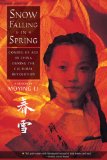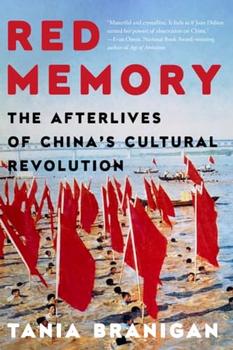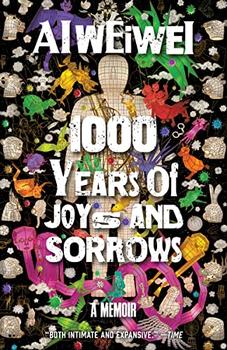Summary | Excerpt | Reviews | Beyond the book | Read-Alikes | Genres & Themes | Author Bio

Coming of Age in China During the Cultural Revolution
by Moying LiThis inspiring memoir following the Author from age twelve to twenty-two, illuminating a complex, dark time in China’s history as it tells the compelling story of one girl’s difficult but determined coming-of-age during the Cultural Revolution.
Most people cannot remember when their childhood ended. I, on the other hand, have a crystal-clear memory of that moment. It happened at night in the summer of 1966, when my elementary school headmaster hanged himself.
In 1966 Moying, a student at a prestigious language school in Beijing, seems destined for a promising future. Everything changes when student Red Guards begin to orchestrate brutal assaults, violent public humiliations, and forced confessions. After watching her teachers and headmasters beaten in public, Moying flees school for the safety of home, only to witness her beloved grandmother denounced, her home ransacked, her father’s precious books flung onto the back of a truck, and Baba himself taken away. From labor camp, Baba entrusts a friend to deliver a reading list of banned books to Moying so that she can continue to learn. Now, with so much of her life at risk, she finds sanctuary in the world of imagination and learning.
This inspiring memoir follows Moying Li from age twelve to twenty-two, illuminating a complex, dark time in China’s history as it tells the compelling story of one girl’s difficult but determined coming-of-age during the Cultural Revolution.
Li's story, though rooted in China, will speak to every young person struggling to realize his or her ambitions, and to every loving family facing hardship or loss. Young readers will appreciate Li's plainspoken style, her restraint, and the clarity with which she describes the unthinkable as well as the beautiful. Adult readers will find much to admire, and will discover not only a poignant story of a vanished world, but a meditation on what parents can and cannot give their children: They cannot guarantee peace or prosperity, they cannot always be present, but as Li puts it, parents can bestow a profound "sense of direction."..continued
Full Review
 (491 words)
(491 words)
(Reviewed by Jo Perry).
Some of the most memorable and painful moments in Snow Falling in Spring involve the solace of reading and the loss and destruction of books.
American readers might be surprised to know that in America books are frequently
challenged and even banned.
The American Library Association explains the difference between a challenge and a banning of a book as follows: "A challenge is an attempt to remove or restrict materials, based upon the objections of a person or group. A banning is the removal of those materials. Challenges do not simply involve a person expressing a point of view; rather, they are an attempt to remove material from the curriculum or library, thereby restricting the access of others."
The American Library ...

If you liked Snow Falling in Spring, try these:

by Tania Branigan
Published 2024
An indelible exploration of the invisible scar that runs through the heart of Chinese society and the souls of its citizens.

1000 Years of Joys and Sorrows
by Ai Weiwei
Published 2022
In his widely anticipated memoir, "one of the most important artists working in the world today" (Financial Times) tells a century-long epic tale of China through the story of his own extraordinary life and the legacy of his father, the nation's most celebrated poet.